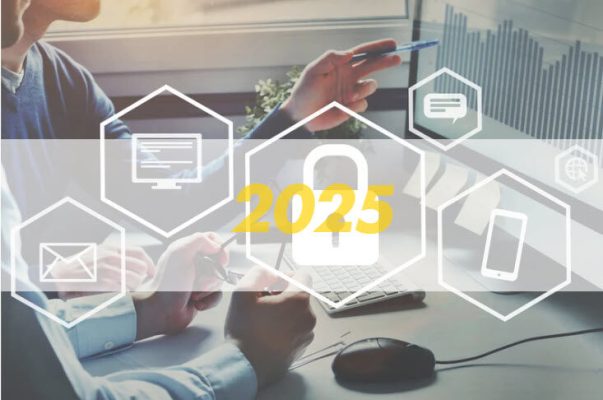
A Guide for General Users and Organizations
As we step further into 2025, the digital world is evolving rapidly—and so are the threats within it. From smarter cyberattacks to advanced defense systems, it’s becoming more important than ever for individuals and businesses to understand the cybersecurity landscape and prepare accordingly.
Here are the key cybersecurity trends shaping 2025 that everyone should be aware of:
1. Wider Adoption of Passkeys
Passwords are slowly being replaced by passkeys, which offer a more secure and user-friendly way to log in to systems. Instead of relying on something you remember (like a password), passkeys work with something you have—like your phone or fingerprint. Tech giants are pushing this technology, and we can expect a significant increase in its adoption this year.
2. AI-Powered Phishing Scams
Cybercriminals are now using AI to generate personalized phishing emails that look incredibly real. These emails can mimic familiar senders, replicate writing styles, and include accurate details about you, making them harder to detect. Organizations need smarter filters, and individuals must stay alert and skeptical of unexpected messages.
3. More Advanced Deepfake Threats
Deepfake technology is getting better—and more dangerous. Fake videos and voice clips can now convincingly impersonate real people, which opens the door to fraud, blackmail, or misinformation. This makes it harder to trust what we see or hear online, and emphasizes the need for digital literacy and verification tools.
4. AI for Cyber Defense and Support
AI isn’t just being used by attackers—it’s also becoming a key player in cybersecurity defense. AI tools are now helping teams:
- Detect threats faster
- Recommend how to respond to incidents
- Even answer cybersecurity-related questions and guide professionals through complex cases
This shift helps close the gap caused by the global shortage of cybersecurity talent.
5. The Rise of Quantum Computing
Quantum computers—still in their early stages—have the power to crack current encryption methods much faster than traditional systems. While this could disrupt how we protect data, new methods called post-quantum cryptography are being developed to defend against these future threats.
6. Everyday AI Raises New Security Concerns
AI is now embedded in almost everything we use—from mobile phones and apps to digital assistants and smart home devices. While this makes our lives more convenient, it also raises serious concerns about data privacy and misinformation. If not handled responsibly, AI could unintentionally leak personal information or spread false data.
Cybersecurity is no longer just an IT issue—it’s everyone’s responsibility. The more we understand what’s happening in the digital world, the better we can protect ourselves and our organizations. Thanks for IBM Technology for an informative video that inspired us to write this article. Please check it out to dive more in details here: